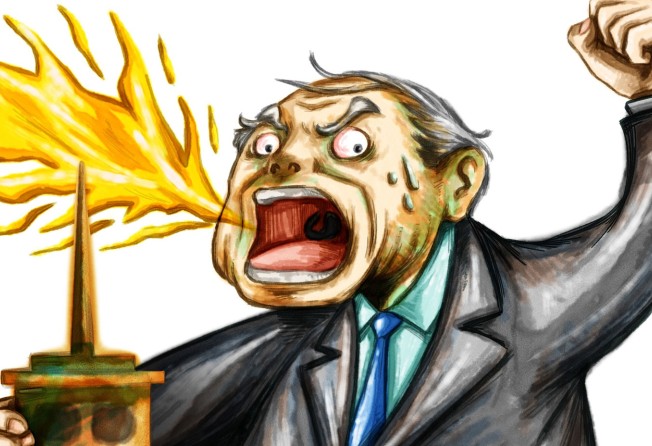More than just a flash in the pan: the high cost of rudeness at work
One study found that 98 per cent of workers reported experiencing incivility at work

There are few of us who have not experienced rude behaviour in our working lives – either on the sharp receiving end, or as a witness seeing a colleague being targeted.
If we are honest, at some point or another, most of us have likely also dealt out a degree of rudeness ourselves. Maybe in reaction to having previously been the target of such behaviour, maybe unintended, or because we were tired, had too much work to do, or just did not pay attention.
Often, incidents of rudeness at work are dismissed as a flash in the pan; an inevitable but inconsequential side effect of the daily pressures of working life. “Get over it and move on” is the standard remedy.
But is it really so trivial, or is there something deeper and more troubling taking place?
Over the past 15 years, a growing body of research around the world has shown workplace incivility to be a pervasive behaviour, and one that carries a high price.
One study, for example, found that 98 per cent of workers reported experiencing incivility at work, with half saying they had been the recipient of such conduct at least weekly.
Researchers have even estimated the business cost of incivility at US$14,000 per employee a year.
Words certainly carry great power – used constructively, they can create bonds, open opportunities and seal deals. But as ammunition, they can cause huge damage, undoing in an instant that which has taken thousands of dollars and work hours to build.
Incivility is different from other forms of negative workplace behaviour such as bullying, violence or aggression, which are more overt and easier to identify.
Examples might include talking down to others, demeaning remarks and not listening to or talking over another’s viewpoint. It may also have underlying implications of sexism, racism or other prejudice.
But defining the specifics of incivility is difficult as the intent to cause harm tends to be ambiguous.
Studies in organisational behaviour have shown that incidents of incivility can have a range of consequences, including:
●employee stress and frustration;
●poor motivation and productivity;
●work distraction or delays as staff members withdraw from workplace engagement and/or try to avoid instigators.
Some studies have suggested that, unchecked, these may lead to an escalating spiral of incivility as one worker takes out their frustrations on another, perhaps leading to more severe behaviour.
Others have looked at how affected staff may resort to taking out frustrations on customers – with obvious potential cost implications for a firm’s reputation.
Studies have also looked at the impact on those who witness incivility taking place, rather than being the actual recipient. This too can have a range of consequences similar to those detailed above.
A significant and consistent finding from research is that workplace incivility occurs worldwide – across countries and cultures – and has similar negative consequences wherever it takes place.
In other words, while different cultures may have different perceptions as to what qualifies as rude behaviour – the negative effects of incivility in the workplace, whatever that behaviour may be, are universal.
A similar finding has been observed across different organisational and industrial cultures.
For example, being yelled at in a masculine organisational culture such as an army training camp might be considered par for the course; while a similar encounter at a child day care centre would – we can reasonably safely say – be considered highly uncivil.
Yet the body of research has shown consistently that even for workers who might be thought to have built up a tolerance for rudeness (for example, call centre operators), small incidents of incivility still have an impact.
While we are beginning to appreciate the costs of incivility, a notable gap in current research is whether different sources of rude behaviour – for example, from co-workers, supervisors or customers – generates different outcomes.
We can assume, however, that it is likely uncivil behaviour coming from a supervisor is more harmful than from a co-worker, because employees depend on their supervisors for evaluations and rewards.
Similarly, rude behaviour from a co-worker is probably more harmful than from a customer, because employees may have just one encounter with an uncivil customer but will have to face an uncivil co-worker every working day.
The impact or consequences of incivility can be wide-ranging, affecting a targeted worker’s mood and attitudes towards work as well as their family and personal lives. It can also have behavioural effects, causing those targeted by incivility to lash out in retaliation or exhibit other counterproductive conduct either in the workplace or elsewhere.
We have also seen that being a witness to incivility can have an impact on mood and attitudes, negatively affecting such areas as helpfulness at work, levels of engagement or other aspects of corporate citizenship.
The broad body of knowledge we have accumulated on incivility makes for alarming reading, showing such behaviour is widespread and can have a huge financial impact.
There are, however, gaps and further study remains to be done. One area that has received only preliminary attention is the causes of incivility in the workplace – an understanding of which is critical towards mitigating such harmful behaviour.
Nonetheless, we can see that the impact of workplace incivility is more than just a trivial flash in the pan. It can have damaging and lasting effects that exact high costs – both for individuals and firms.
Businesses would do well to be aware of the benefits gained from learning more about its causes and developing ways to address it.
Dr Irene de Pater is assistant professor of management and organisation at the National University of Singapore Business School